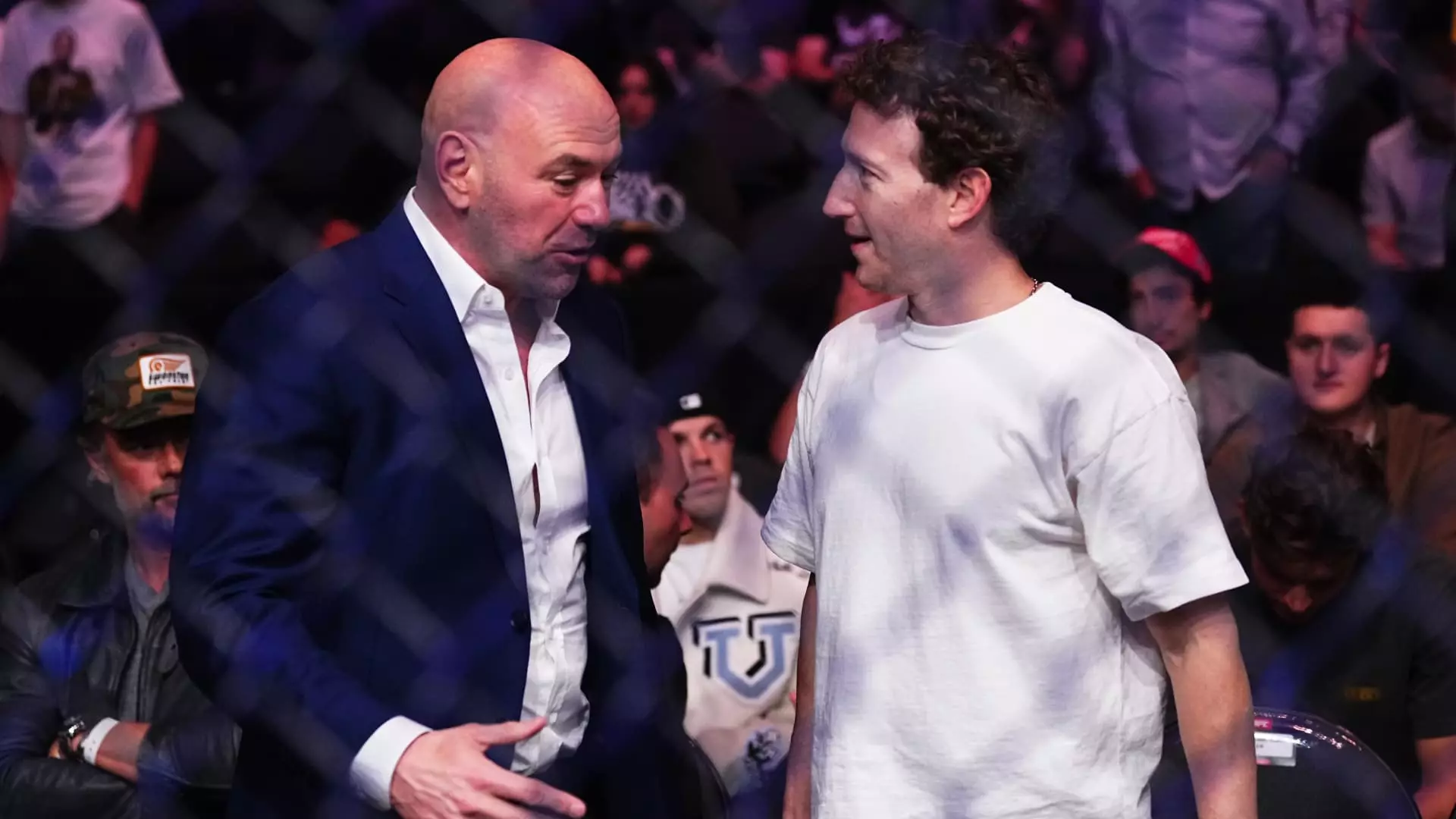In an era where entertainment and technology intertwine seamlessly, the recently forged partnership between UFC and Meta raises eyebrows and red flags. This multimillion-dollar collaboration has proclaimed Meta as the “official fan technology partner” of the UFC, leading to unprecedented integration across Meta’s sprawling digital ecosystem—spanning from social media giants Facebook and Instagram to the nascent world of virtual reality with Meta Quest. On the surface, this union is lauded; yet, beneath the glimmering surface lies a disconcerting reality that begs scrutiny.
The deal, hailed as transformative for both brands, appears to reflect a larger trend where tech companies are leveraging niche sectors to bolster their public profiles better. UFC’s President Dana White promises that this partnership will “blow away UFC fans,” but one has to ask: at what cost? The fight for authenticity and passion in sports is being compromised, with the line between entertainment and corporate maneuvering becoming increasingly blurred.
The Illusion of Connection
Meta’s ambition to become a cornerstone of UFC’s visual and interactive experience reveals an unsettling truth about modern fandom. Fans are not merely consumers; they are the lifeblood of a sport that thrives on the visceral connection between athlete and spectator. Yet, as Meta’s branding infiltrates the sacred ground of the Octagon, one wonders whether the essence of UFC—the rawness, the grit, the unpredictability—will yield to polished marketing agendas.
Grant Norris-Jones, TKO’s head of global partnerships, suggests that Meta can provide UFC with a significant boost in engagement and visibility. But are we sacrificing the sport’s authenticity for this fleeting digital applause? Exclusive content on Threads and live broadcasts referencing Meta’s technologies might cater to a more technologically inclined audience, but they risk alienating the traditional fanbase that cherishes the sport’s unvarnished reality.
The Ghosts of Corporate Entanglements
Moreover, the personal connection between individuals like White and Zuckerberg poses troubling ethical implications. While it’s refreshing to see passion for mixed martial arts at such high executive levels, it should be noted that this camaraderie could lead to conflicts of interest that obscure the priorities of UFC athletes and fans. Are we to trust that the enthusiasm for the sport will not devolve into a chess game of corporate gain, where athletes are mere pawns manipulated for financial profit? The acknowledgment of Zuckerberg’s precarious activities, such as combat sports participation and extreme sports, adds another layer of risk, suggesting that his potential vulnerability could impact the partnership’s longevity.
One must also consider the timing of this partnership. With the UFC’s current media rights negotiation window drawing to a close, striking a deal with a tech giant appears to be a strategic move for survival in a competitive landscape. Yet, one cannot disregard the possibility that this alliance is more a desperate gamble than a well-planned collaboration, revealing an alarming lack of foresight in the UFC’s strategic planning.
Rhetoric or Reality?
Zuckerberg’s comments regarding workforce culture and “masculine energy” further complicate the perception of this partnership. While his enthusiasm for combat sports may resonate positively with certain audiences, it also raises questions about the underlying motivations of his engagement in a sport that often thrives on a culture of aggression. Associating corporate power with perceptions of masculinity can inadvertently glamorize aggression rather than emphasizing skill, strategy, and sportsmanship.
This cultural layering creates a complex narrative that suggests more than just an affinity for mixed martial arts; it hints at a broader agenda that celebrates toxic masculinity under the veil of “innovation.” The implications of such rhetoric cannot be understated as they can influence both the athletes involved and the fans who passionately support them.
While UFC fans may find temporary excitement in new integrations and digital experiences stemming from this partnership, the essence and core principles of mixed martial arts must not be sacrificed on the altar of corporate ambition. The future landscape of sports and technology needs to be navigated with caution, ensuring that fan engagement does not negate the spirit of competition that lies at the heart of UFC and its vibrant community. The line must remain clear: fans crave authenticity over orchestrated digital engagements that risk disconnecting them from the sport they love.



Leave a Reply